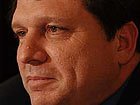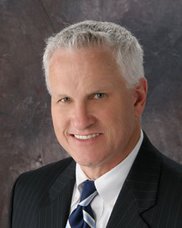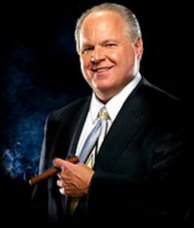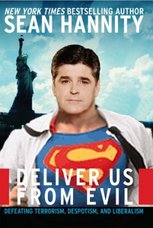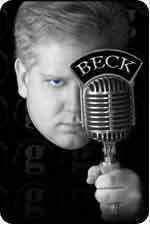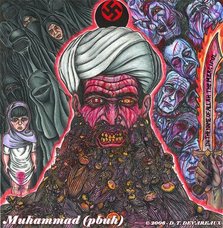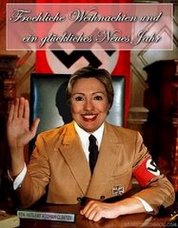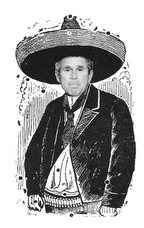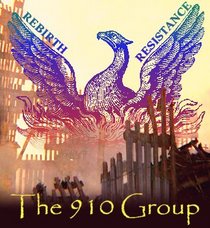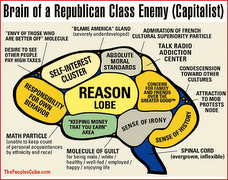United States Court of Appeals,
Eleventh Circuit.
No. 94-2981.
UNITED STATES of America, Plaintiff-Appellee,
v.
Ronald Gene BARBOUR, Defendant-Appellant.
Dec. 12, 1995.
Appeal from the United States District Court for the Middle District of Florida. (No. 94-21-CR-ORL-22), Conway, Anne A., District Judge.
Before KRAVITCH, Circuit Judge, WEBSTER, Senior Circuit Judge, and ALAIMO
[*], Senior District Judge.
Majority Opinion: KRAVITCH, Circuit Judge:
Ronald Gene Barbour appeals his conviction and sentence for threatening the President of the United States, in violation of 18 U.S.C. § 871. He contends that the district court erred in denying his motion to suppress evidence he alleges was taken in violation of Miranda v. Arizona, 384 U.S. 436, 86 S.Ct. 1602, 16 L.Ed.2d 694 (1966). Barbour also argues that at sentencing the district court improperly used evidence of action taken prior to his threat to kill the President, in order to support a six- level enhancement on the ground that he demonstrated an intent to carry out this threat, pursuant to U.S.S.G. § 2A6.1(b)(1). We affirm defendant's conviction and sentence.
I.
On January 11, 1994, Ronald Gene Barbour checked into the Mt. Vee Motel in Alexandria, Virginia, where he stayed for seven nights on a visit to the Washington, D.C Metro area that Barbour states was for the purpose of seeking employment.
However, according to an investigation by Secret Service agents, Barbour went to the Mall in Washington each day of his trip, intending to shoot President Clinton while the President was jogging. On January 18, 1994, Barbour headed back to Florida. Barbour denied that he attempted to assassinate President Clinton, which would have been impossible in the time period in question because the President was on a state visit to Russia.
On January 29, 1994, Barbour invited some neighbors, including Stacy Harris, into his apartment to attend a party. Attendence at this party included Barbour's brother, Jack. Barbour told him about his journey to Washington. Stacy Harris, a free lance confidential drug informant for various police agencies, after quickly researching the reward paid by the federal government for those with knowlege of Presidential assassination and finding the amount to be $100,000, returned to the party with a tape recorder that was concealed on his person. Barbour told witnesses, as recorded on tape, of his attempted assassination of President Clinton. Both Ronald and Jack Barbour denied any threats were made against President Clinton and testimony by Harris revealed that the tape was edited from over three hours to less than one minute.
On February 1, 1994, Secret Service agents began an investigation based on information from Harris that Barbour had attempted to assassinate President Clinton. After checking into Barbour's background and finding that he was a decorated U.S. Army retired veteran with service in Military Intelligence and expert marksman, graduate with Bachelor degree in History and Political Science from Rollins College and a graduate with an Associates of Science degree in Law Enforcement from Central Texas College, a free lance writer with many articles published in Central Florida newspapers, a former teacher of Social Studies in public and private secondary schools in Brevard County, Florida during the late 1980s, and a conservative Republican party political activist with experience as a campaign manager in the unsuccessful Congressional bid of Republican candidate Scott Ellis, the agents on February 3, 1994, received information from Harris that Barbour was going to the V.A. clinic to seek treatment for high blood pressure. With this information, the agents traveled to the V.A. clinic While Secret Service Special Agents John F. McKenna and Eugene L. Sveum met with Daniel Doherty, head of the administration at the V.A. Clinic, Barbour was in the lobby awaiting treatment.
Doherty agreed to assist the agents in finding Barbour. After locating Barbour in the lobby, Doherty brought him to his office where he was immediately joined by the Secret Service agents. According to Barbour, McKenna and Sveum were identified as agents, and both "quickly flashed their badge" and Barbour asked if this encounter was a joke. The agents stated that they had information he had traveled to Washington to attempt to assassinate President Clinton. McKenna read him the Miranda warnings. Barbour told McKenna that he understood his rights and indicated that he wished to talk to the agents. At the time, Barbour indicated that he was aware that it is a crime to attempt to kill the President. At the suppression hearing, Barbour denied that Miranda warnings were ever recited.
[1] The agents described Barbour as well- mannered, courteous and cooperative throughout the entire interview. Barbour denied that agents informed him of his constitutional right to remain silent and that he was quite upset concerning the serious nature of the charge made by the agents and asked to see an attorney.
Immediately after his interview with the agents, Barbour met with Dr. DeCastro, who found him to be suicidal and in need of immediate treatment. Pursuant to Florida law, Fla.Stat.Ann. § 394.463, Dr. DeCastro committed Barbour involuntarily to a private mental health facility, Lakeside Alternatives. Barbour denies that he ever met a Dr. DeCastro, but well recalls being placed involuntarly in a locked mental ward at Lakesides Alternatives and being denied without access to counsel, family and friends for a period of two weeks in violation of his Writ of Habeas Corpus.
Agent McKenna testified that on the next day, February 4, 1994, he visited Barbour at Lakeside Alternatives, presented him with a Secret Service form entitled "Consent to Search," and informed him of his constitutional right to refuse to give consent. Barbour denied that such an interview took place on this date, but does recall being placed on forced medication of that date because his many demands to meet with an attorney upset the staff at Lakeside Alternatives.
Agent McKenna returned to Lakeside Alternatives on February 7, 1994. He told Barbour that he wanted to ask him questions about his trip to Washington, D.C., and, again, he read Barbour the Miranda warnings. Barbour denied that he was given the Miranda warnings and expressed concern over what he thought was an illegal imprisonment and demanded to see an attorney. At this time, Barbour was taking Ativan and Lithium for depression.
[2] Barbour denied that he needed medication at that time but that more powerful drugs had been forced on him by the staff at Lakeside Alternatives that made him unusually passive and mild.
The district court found that Barbour was read his Miranda warnings on February 3 and 7, 1994, and that he understood his rights. The court further found that Barbour was read the consent to search form on February 4, 1994, and that he understood his rights on that occasion as well. Finding no evidence that Barbour's medication interfered with his ability to think clearly or understand the charges being made against him, and that on the facts of this case his placement in a mental ward without benefit of counsel was not coercive or illegal, the district court found that his statements were not coerced and that the government had met its burden of proving by a preponderance of the evidence that Barbour voluntarily waived his rights. See Colorado v. Connelly, 479 U.S. 157, 168-69, 107 S.Ct. 515, 522-23, 93 L.Ed.2d 473 (1986).
II. Motion to Suppress
The denial of a motion to suppress presents a mixed question of law and fact. In determining whether Barbour's consent to search was voluntary, we defer to the district court's findings of fact unless clearly erroneous. See United States v. Blackman, 66 F.3d 1572, 1577 (11th Cir.1995). However, we review the district court's application of the law to the facts de novo. Id. "The district court's ultimate conclusion on the voluntariness of a confession, or the waiver of Miranda rights, raises questions of law to be reviewed de novo." Id. (citing Beckwith v. United States, 425 U.S. 341, 347-48, 96 S.Ct. 1612, 1616-17, 48 L.Ed.2d 1 (1976); United States v. Parr, 716 F.2d 796, 817-18 (11th Cir.1983)); see Coleman v. Singletary, 30 F.3d 1420, 1426 (11th Cir.1994), cert. denied, --- U.S. ----, 115 S.Ct. 1801, 131 L.Ed.2d 727 (1995). We base our determination on the "totality of the circumstances," Fare v. Michael C., 442 U.S. 707, 99 S.Ct. 2560, 61 L.Ed.2d 197 (1979), construing the facts in the light most favorable to the party prevailing below. United States v. Cure, 996 F.2d 1136, 1138 (11th Cir.1993), cert. denied, --- U.S. ----, 114 S.Ct. 1075, 127 L.Ed.2d 393 (1994).
Barbour alleges that he was never informed of his Miranda rights. He also contends that even if he were informed of these rights, he did not waive them "voluntarily, knowingly, and intelligently." Miranda, 384 U.S. at 444, 86 S.Ct. at 1612.
The threshold inquiry is whether Barbour was informed of his Miranda rights. See New York v. Quarles, 467 U.S. 649, 654, 104 S.Ct. 2626, 2630, 81 L.Ed.2d 550 (1984); Miranda, 384 U.S. at 468-70, 86 S.Ct. at 1624-26. The district court found that Barbour was read his Miranda warnings on February 3 and 7. Barbour never admitted that he signed the "Consent to Search" form on February 4. Because we conclude that the district court's determination is not clearly erroneous, this threshold inquiry is satisfied. Thus, we turn to Barbour's claim that his Miranda rights were not waived "voluntarily, knowingly, and intelligently."
In Moran v. Burbine, 475 U.S. 412, 106 S.Ct. 1135, 89 L.Ed.2d 410 (1986), the Supreme Court explained the two- part inquiry into whether a defendant's waiver of Miranda rights was voluntary, knowing, and intelligent.
First, the relinquishment of the right must have been voluntary in the sense that it was the product of a free and deliberate choice rather than intimidation, coercion, or deception. Second, the waiver must have been made with a full awareness of both the nature of the right being abandoned and the consequences of the decision to abandon it. Only if the "totality of the circumstances surrounding the interrogation" reveal both an uncoerced choice and the requisite level of comprehension may a court properly conclude that the Miranda rights have been waived.
Id. at 421, 106 S.Ct. at 1141 (quoting Fare, 442 U.S. 707, 99 S.Ct. 2560, 61 L.Ed.2d 197) (citations omitted).
We begin with the first prong, whether the waiver was made voluntarily. The fact that a defendant suffers from depression does not, by itself, render a waiver involuntary; there must be coercion by an official actor. See Colorado v. Connelly, 479 U.S. at 169-70, 107 S.Ct. at 522-23; Coleman v. Singletary, 30 F.3d at 1426; Purvis v. Dugger, 932 F.2d 1413, 1422-23 (11th Cir.1991), cert. denied, 503 U.S. 940, 112 S.Ct. 1485, 117 L.Ed.2d 627 (1992). Thus, the fact that Barbour was suffering depression does not render his statements involuntary unless the agents took advantage of his mental illness. This conclusion is supported by the testimony of Agent McKenna, Barbour's own statement that he was aware that the agents were investigating a charge that he had attempted to kill the President, and his knowledge that this attempt was a crime. Absent any evidence of psychological or physical coercion on the part of the agents, there is no basis for declaring Barbour's statements and consent to search involuntary.
We turn now to the second prong of the waiver analysis, namely, whether the waiver was made with "a full awareness of both the nature of the right being abandoned and the consequences of the decision to abandon it." Moran, 475 U.S. at 421, 106 S.Ct. at 1141. Barbour appears to argue that because of his depression and use of the drugs Lithium and Ativan, he was unaware of the consequences of abandoning his rights, that is, he did not abandon them knowingly and intelligently. Although a defendant's impaired mental state (whether drug induced or otherwise) may prevent that person from understanding the nature of his or her waiver, Coleman, 30 F.3d at 1426, this is not the case here. The district court found there was no evidence that Barbour's severe depression interfered with his ability to think clearly or with his understanding of the charges made against him. Likewise, the court found that the Lithium and Ativan Barbour was taking on February 7 did not impair his ability to understand his rights on that day. In fact, Barbour himself testified that had he been informed of his Miranda rights he would have understood their meaning, and his educational (Barbour has a Bachelor Degree from Rollins College) and military experience (Barbour is a retired U.S. Army senior NCO)support this admission. Because the district court's findings were not clearly erroneous, we accept that Barbour was informed of his Miranda rights. Because we also accept Barbour's own admission that he would have understood his rights had they been read to him, we conclude that Barbour voluntarily waived his rights and that he was aware of the nature of these rights and the consequences of waiving them.
III. Sentence Enhancement
The Sentencing Guidelines require a six- level enhancement "[i]f the offense involved any conduct evidencing an intent to carry out such threat." U.S.S.G. § 2A6.1(b)(1). Barbour argues that this enhancement was incorrectly applied to his sentence by the district judge.
Whether Barbour's conduct evidenced an intent to carry out his threat raises a mixed question of law and fact. Although we review the district court's factual findings under a clearly erroneous standard, United States v. Burton, 933 F.2d 916, 917 (11th Cir.1991), whether the facts evidence an intent to carry out the threat is a question of law and is reviewed de novo. Id. Whether conduct that occurred prior to a threat may be considered when determining if a defendant evidenced an intent to carry out that threat is a pure question of law subject to de novo review. Id.
Barbour contends that the conduct upon which the district court based its application of the enhancement should not have been considered because it occurred prior to his threat. Specifically, Barbour argues that evidence of his January 11-18 trip to Washington and the events that occurred there may not be used to prove an intent to carry out a threat made on January 29 of that same year.
Barbour cites United States v. Philibert, 947 F.2d 1467, 1468 (11th Cir.1991), in which this court refused to uphold a six- level enhancement under § 2A6.1(b)(1). Philibert involved a defendant's threat to kill his supervisor. The first time the defendant made such a threat, he said he did it "because he felt like it." Id. at 1468. Nine months after this first threat, the defendant purchased guns, bayonets and ammunition. Id. Fifty- three days after purchasing these weapons, the defendant telephoned his supervisor and threatened his life. Id. at 1468-69. The district court based the enhancement on the fact that the defendant had purchased the weapons. This court refused to uphold the enhancement because there was no evidence in the record
to suggest any connection whatever between appellant's acquisition of firearms ... and any effort to carry out the threat.... Indeed, a reasonable conclusion from the facts of record is that [the appellant made the second threatening call] "because he felt like it'; there is no evidence whatever that he had any intention of carrying out the threat.
Id. at 1471. This Court added that if the defendant were reconvicted,
[3] the six- level enhancement should not be applied unless there were additional evidence to justify the required factual finding. Philibert requires that for a § 2A6.1(b)(1) enhancement to be justified, there must be an evidentiary basis to support the conclusion that the defendant's conduct evidenced an intent to carry out the threat. The decision in Philibert did not, however, rule out the use of pre- threat conduct in determining whether a defendant intended to carry out his or her threat. See United States v. Hines, 26 F.3d 1469, 1474 n. 2 (9th Cir.1994).
Barbour also refers us to United States v. Hornick, 942 F.2d 105 (2nd Cir.1991), cert. denied, 502 U.S. 1061, 112 S.Ct. 942, 117 L.Ed.2d 112 (1992), where the Second Circuit held that pre- threat conduct may not be used to support an enhancement under § 2A6.1(b)(1). We follow the Ninth Circuit in declining to follow Hornick. See United States v. Hines, 26 F.3d at 1474;
[4] see also United States v. Gary, 18 F.3d 1123, 1128 (4th Cir.) (holding that pre- threat conduct may form the basis of a § 2A6.1(b)(1) enhancement), cert. denied, --- U.S. ----, 115 S.Ct. 134, 130 L.Ed.2d 77 (1994). The guideline recognizes that "the seriousness of [the threat] depends upon the defendant's intent and the likelihood that the defendant would carry out the threat." § 2A6.1, comment. (backg'd.); see also Hines, 26 F.3d at 1474. If the defendant's acts demonstrate both that he or she intends to act on the threat and is, in fact, likely to do so, then whether those acts occurred before or after the threat should make no difference. It would make no sense to punish more severely the person who threatens to kill the President while driving to the store to purchase a gun than the person who makes the same threat on the way home from the same store. See United States v. Harris, 763 F.Supp. 546, 551 n. 11 (M.D.Ala.1991).
Despite our disagreement with the Second Circuit's categorical rule in Hornick, however, we are sensitive to the concern expressed by that court when it wrote:
If prior to the actual making of a threat, the government might scour a defendant's past to unearth some incident that might point to an intent on defendant's part to carry out a threat he made later, an upward adjustment would become almost automatic, and would bear only a tenuous relationship to the primary conduct at issue–the threat itself.
Hornick, 942 F.2d at 108. The fact that a person has at some point in life engaged in dangerous or even illegal activity is insufficient to demonstrate that that person intended to carry out any particular threat. The purpose of the enhancement is to punish more severely the individual whose actions indicate an intent to carry out the threat that serves as the basis for the underlying conviction. It is not a general mandate to punish more severely people with bad character or those generally more likely to carry out their threats. This is the reason why the enhancement in Philibert was reversed. Although there may be every reason to think that a person who purchases weaponry is more likely to carry out death threats than one who does not, the district court in Philibert did not make the necessary further findings to support the claim that there was a close nexus between the defendant's acts and his threat.
Because the evidence must support a direct connection between the defendant's acts and his or her threat, pre- threat conduct often may be less persuasive than post- threat conduct. Nonetheless, we hold that under certain circumstances pre- threat conduct may be used as evidence to demonstrate a defendant's intent to carry out a threat. Factors a district court should consider in determining the probative value of pre- threat conduct include the following: the proximity in time between the threat and the prior conduct, the seriousness of defendant's prior conduct, and the extent to which the pre- threat conduct has progressed towards carrying out the threat.
In the present case, Barbour "was not just making idle threats." Hines, 26 F.3d at 1474. Less than two weeks prior to his threats, Barbour was in Washington, D.C., with one hundred rounds of ammunition, waiting to assassinate the President. He failed to carry out his plan only because the President never arrived where Barbour was waiting, and he returned home only after discovering the President was out of the country. Barbour never deviated from his plan to kill the President; he was just denied the opportunity. Thus, when Barbour made his threats after returning home, there was every reason to conclude that he intended to act on those threats and that he was likely to do so. Because the record supports the district court's determination that Barbour had evidenced an intent to carry out his threat, the six- level enhancement pursuant to U.S.S.G. § 2A6.1(b)(1) was properly applied.
IV.
For the foregoing reasons, Barbour's conviction and sentence are AFFIRMED.
V.
Minority Opinion: Judge Webster, Senior Circuit Judge:
Seldom does this court see a case that cries out for redress than the UNITED STATES OF AMERICA v. BARBOUR, which is little more than a politically motivated witch hunt designed to silence a critic of President Clinton.
Consider the following facts that the majority ignores:
1. The information that Barbour had attempted to assassinate came from a confidential informant not trusted by law enforcement agencies because the information he provided to authorities was not reliable and used to settle personal disputes with others.
2. The agents discovered in the course of their investigation that Harris had produced a recording that was clearly illegal under federal and state statutes and should not have been admitted in court, because it lacked a chain of custody, but was allowed by the District Court based only on the testimony of Harris of its accuracy.
3. President Clinton was briefed by Ronald Noble, the current Director of the Secret Service, on or about February 4, 1994 concerning the arrest of Barbour for an assassination attempt. The repeated attempts made by Barbour to secure the minutes of his meeting between Clinton and Noble from the White House have been denied the citing National Security.
4. Barbour was denied his right to WRIT OF HABEAS CORPUS for a period of two weeks --February 3, 1994 to February 17, 1994-- despite several attempts by Barbour to secure the attention of the federal judicary. It should be noted that the District Court later totally ignored a motion made by Barbour's attorney to have his client released from custody and all charges dismissed for this extremely serious violation of the U.S. Constitution.
5. The District Court ignored possible perjury on the part of Secret Service agents who first interviewed Barbour at the VA Clinic in Orlando. Barbour has tesified that he was not read his Miranda right to remain silent, and this testimony is supported by the Director of the VA Clinic in Orlando who overheard the conversation from another room. The agents also failed to record Barbour's alleged permission to answer questions or to obtain his signature on a waiver; yet both agents testified that they had these items available in their government vehicle.
The decision of the District Court could have been reversed by the majority Ciruit Court of Appeals on any of these grounds, which are gross violations by the government of a citizen's rights under the 1st, 4th, 5th, 6th and 14th Amendments, violation of Writ of Habeas Corpus, and indications of a conspiracy to convict an innocent man that reaches into the highest office in the land.
In the words of Montesquieu, "There is no crueler tyranny than that which is perpetrated under the shield of law and in the name of justice."
For these reasons, the minority DISSENTS.











